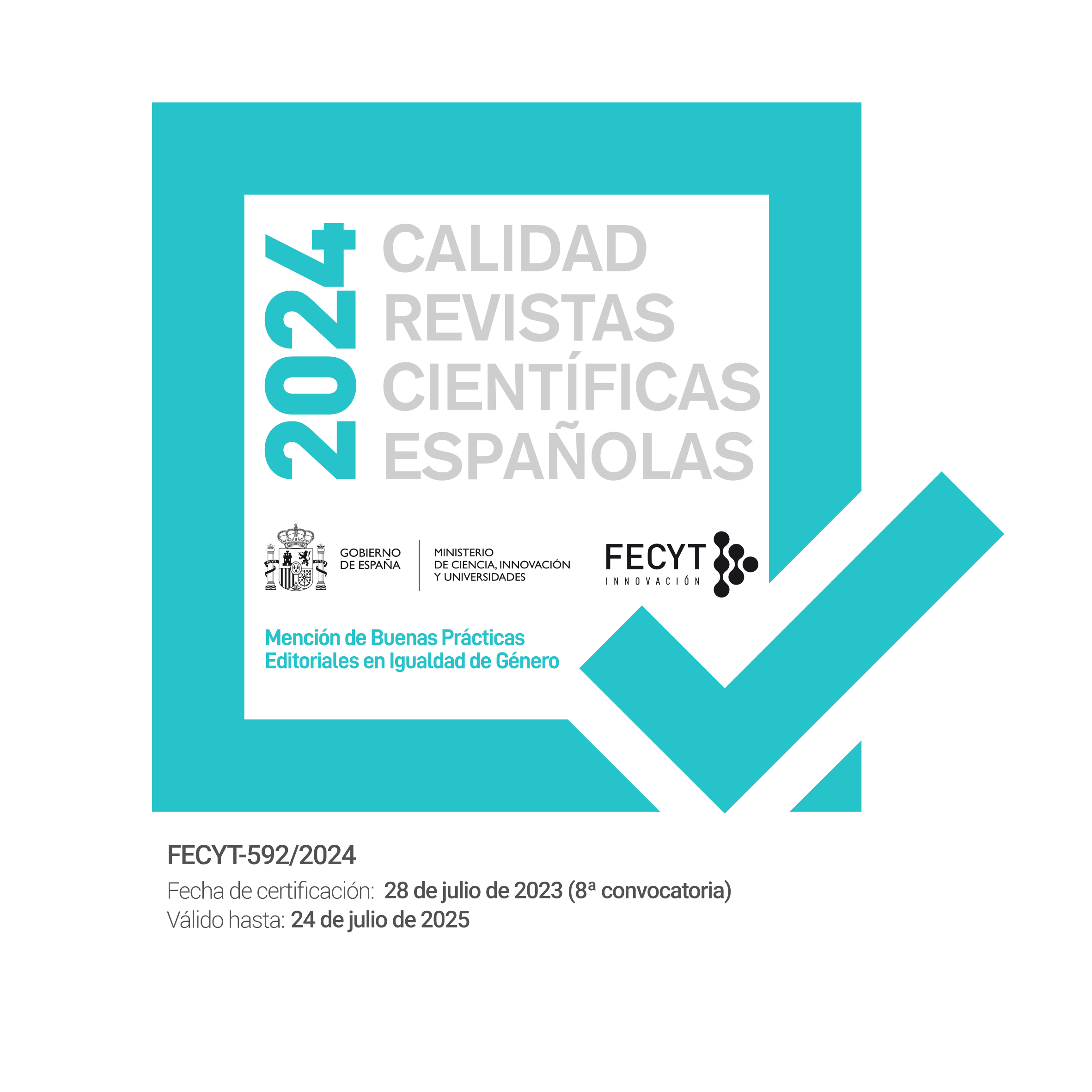¿Agencia de los refugiados a través de “bare life”? Nuevas formas de voz y estrategias de imperceptibilidad en las fronteras europeas
Resumen
Como resultado del número (comparativamente) alto de refugiados llegados a Europa en 2015 y 2016, varias prácticas del régimen fronterizo europeo se volvieron más restrictivas. Esta dinámica contribuye a la situación precaria de los campos de refugiados en las fronteras exteriores del sureste de Europa y la negativa parcial de los países mediterráneos a aceptar más solicitantes de asilo —en el marco de la falta de un sistema de solidaridad europeo. La literatura sugiere que los refugiados en estos contextos se encuentran más a menudo en (lo que Agamben describe como) una situación de “bare life”, que desafía las posibilidades de agencia de los refugiados en las fronteras europeas. Este artículo reflexiona sobre dos casos concretos interpretados como situaciones de “bare life” a partir de un trabajo de campo realizado en Grecia e Italia. Explora las conceptualizaciones considerando un supuesto cambio de la agencia de los refugiados. El primer caso se refiere a la situación en el antiguo campo de “Moria” y el segundo a las prácticas de irregularización en el sur de Italia. Mi objetivo es especificar las limitaciones de la agencia de los refugiados partiendo de una comprensión de la misma en relación con el régimen fronterizo. Las conclusiones sugieren que la vida desnuda a la que se han visto reducidos los refugiados explica el desarrollo de nuevas formas de voz en los campos de refugiados y de estrategias de imperceptibilidad en la irregularidad. De este modo, los actos de los refugiados exponen la adversidad de las prácticas fronterizas, a la vez que se apropian y redefinen las condiciones de “bare life”.
Recibido: 14 febrero 2022
Aceptado: 06 mayo 2022
Descargas
Citas
Agamben, Giorgio. 1998. Homo Sacer: Sovereign Power and Bare Life. Stanford: Stanford University Press.
Agamben, Giorgio. 2012. Die souveräne Macht und das nackte Leben. Frankfurt am Main: Suhrkamp.
Arendt, Hannah. 1949. «Es gibt nur ein einziges Menschenrecht.» Die Wandlung 4: 754-770.
Arendt, Hannah. 1994. «We refugees.» Altogether elsewhere. Writers on exile, edited by Marc Robinson, 110-119. London: Faber and Faber.
Arendt, Hannah. 1958. Origins of Totalitarianism. Cleveland: Meridien Books.
Biswas, Shampa and Sheila Nair, eds. 2009. International Relations and States of Exception. London: Routledge.
Boutang, Yann Moulier. 2007. «Europa, Autonomie der Migration, Biopolitik». In Empire und die biopolitische Wende. Die internationale Diskussion im Anschluss an Hardt und Negri, edited by Marianne Pieper, Thomas Atzert, Serhat Karakayalı and Vassilis Tsianos, 169-178. Frankfurt: Campus.
Buckel, Sonja and Jens Wissel. 2010. «State Project Europe: The transformation of the European border regime and the production of bare life». International Political Sociology 4, no 1: 33-49. DOI: https://doi.org/10.1111/j.1749-5687.2009.00089.x.
Córdova Morales, Edgar. 2021. «The black holes of Lesbos: life and death at Moria camp: Border violence, asylum, and racisms at the edge of postcolonial Europe.» Intersections 7, no. 2: 73-87. DOI: https://doi.org/10.17356/ieejsp.v7i2.895.
Davies, Thom and Arshad Isakjee. 2019. «Ruins of Empire: Refugees, race and the postcolonial geographies of European migrant camps.» Geoforum 102: 214-217. DOI: https://doi.org/10.1016/j.geoforum.2018.09.031.
Davies, Thom, Arshad Isakjee and Dhesi Surindar. 2017. «Violent inaction: The necropolitical experience of refugees in Europe.» Antipode 49, no. 5: 1263-1284. DOI: https://doi.org/10.1111/anti.12325.
Dines, Nick, Nicola Montagna, and Vincenzo Ruggiero. 2015. «Thinking Lampedusa: border construction, the spectacle of bare life and the productivity of migrants.» Ethnic and Racial Studies 38, no. 3: 430-445. DOI: https://doi.org/10.1080/01419870.2014.936892.
Foucault, Michel. 2010. The birth of biopolitics. Lectures at the Collège de France, 1978-1979. Basingstoke: Palgrave Macmillan.
Freddi, Giulia. 2015. «Treffen der Organisationen und Institutionen in Catania, um ueber die Abschiebungen zu sprechen. Aus dem Italienischen von Antonella Monteggia.» Borderline Sicilia Onlus, 20 October. Accessed 6 January 2021. http://siciliamigrants.blogspot.de/2015/10/treffen-der-organisationen-und.html.
Geisel, Sieglinde. 2021. «Zustände im Fluechtlingslager Kara Tepe. Unsere verlorene Unschuld.» Deutschlandfunk, 15 January. Accessed 20 April 2021. https://www.deutschlandfunkkultur.de/zustaende-im-fluechtlingslager-kara-tepe-unsere-verlorene.1005.de.html?dram%3Aarticle_id=490844.
de Genova, Nicholas. 2017. «Introduction. The Borders of “Europe” and the European Question.» In The borders of “Europe”. Autonomy of migration, tactics of bordering, edited by Nicholas de Genova, 1-35. London: Duke University Press.
Gordon, Eleanor and Henrik Kjellmo Larsen. 2021. «The violent inaction of the state and the camp as site of struggle: The perspectives of humanitarian actors in Moria Camp, Lesvos.» European Journal of International Security 6, no. 4: 418-438. DOI: https://doi.org/10.1017/eis.2021.9.
Hoehler, Gerd. 2019. «Europa lässt uns im Stich.» Die Zeit, 23 December. Accessed 27 February 2022. https://www.zeit.de/gesellschaft/zeitgeschehen/2019-12/griechenland-aegaeisinseln-tuerkei-migration-eu-asylpolitik/komplettansicht.
Hamilakis, Yannis. 2022. «Border assemblages between surveillance and spectacle: What was Moria and what comes after?» American Anthropologist 7, no. 2: 1-9. DOI: https://doi.org/10.1111/aman.13693.
Hirschman, Albert O. 1970. Exit, voice, and loyalty. Responses to decline in firms, organizations, and states. Cambridge, Mass.: Harvard University Press.
Hirschman, Albert O. 1978. «Exit, Voice, and the State.» World Politics 31, no. 1: 90-107.
Isin, Engin F. 2008. «Theorizing acts of citizenship.» In Acts of citizenship, edited by Engin F. Isin and Greg Marc Nielsen, 15-43. London: Zed.
Jansen, Yolande, Robin Celikates and Joost de Bloois, eds. 2015. The irregularization of migration in contemporary Europe. Detention, deportation, drowning. London: Rowman & Littlefield International.
Markham, Lauren. 2022. «“A disaster waiting to happen”: who was really responsible for the fire at Moria refugee camp?» The Guardian, 21 April.
Martens, Michael. 2020. «Fluechtlingslager Moria: Die Chronik einer Katastrophe.» Frankfurter Allgemeine Zeitung, 14 September.
Martin, Diana; Minca, Claudio and Irit Katz. 2019. «Rethinking the camp: On spatial technologies of power and resistance.» Progress in Human Geography 44, no. 4: 743-768. DOI: https://doi.org/10.1177/0309132519856702.
Nyers, Peter. 2011. «Forms of irregular citizenship. The contested politics of mobility.» Borderzones and irregularity, edited by Vicky Squire,184-198. New York: Routledge.
Owens, Patricia. 2009. «Reclaiming “Bare Life”?: Against Agamben on Refugees.» International Relations 23, no. 4: 567-582. DOI: https://doi.org/10.1177/0047117809350545.
Papadopoulos, Dimitris and Vassilis Tsianos. 2007. «The autonomy of migration: The animals of undocumented mobility.» In Deleuzian encounters. Studies in contemporary social issues, edited by Anna Hickey-Moody and Peta Malins, 223-235. Basingstoke: Palgrave Macmillan.
Puumala, Eeva; Tarja Väyrynen, Anitta Kynsilehto, and Pehkonen Samu. 2011. «Events of the body politic: A Nancian reading of asylum-seekers’ bodily choreographies and resistance.» Body & Society 17, no. 4: 83-104. DOI: https://doi.org/10.1177/1357034X11410453.
Rajaram, Prem Kumar and Carl Grundy-Warr. 2004. «The irregular migrant as Homo Sacer: Migration and detention in Australia, Malaysia, and Thailand.» International Migration 42, no. 1: 33-64. DOI: https://doi.org/10.1111/j.0020-7985.2004.00273.x.
Round, John and Irina Kuznetsova. 2016. «Necropolitics and the migrant as a political subject of disgust: The precarious everyday of Russia’s labour migrants.» Critical Sociology 42, no. 7-8: 1017-1034. DOI: https://doi.org/10.1177/0896920516645934.
Rozakou, Katerina. 2019. «“How did you get in?” Research access and sovereign power during the “migration crisis” in Greece.» Social Anthropology 27 (S1): 68-83. DOI: https://doi.org/10.1111/1469-8676.12620.
Rygiel, Kim. 2011. «Governing borderzones of mobility through E-borders: The politics of embodied mobility.» In The contested politics of mobility. Borderzones and irregularity, edited by Vicki Squire, 143-168. London: Routledge.
Scheel, Stephan. 2013. «Studying embodied encounters: autonomy of migration beyond its romanticization.» Postcolonial Studies 16, no. 3: 279-288. DOI: https://doi.org/10.1080/13688790.2013.850046.
Scheel, Stephan. 2015. «Das Konzept der Autonomie der Migration überdenken? Yes please!» Movements. Journal for Critical Migration and Border Regime Studies 1, no. 2.
Schindel, Estela. 2016. «Bare life at the European borders. Entanglements of technology, society and nature.» Journal of Borderlands Studies 31, no. 2: 219-234. DOI: https://doi.org/10.1080/08865655.2016.1174604.
Schulze-Wessel, Julia. 2012. «Grenzfiguren. Über Staatenlosigkeit, undokumentierte Migration und die Permanenz der Grenze.» Zeitschrift für Politische Theorie 2: 151-166.
Schulze-Wessel, Julia. 2013. «Hannah Arendts politische Theorie des Flüchtlings.» In Ambivalenzen der Ordnung, edited by Julia Schulze Wessel, Christian Volk and Samuel Salzborn, 69-93. Wiesbaden: Springer Fachmedien Wiesbaden.
Schulze-Wessel, Julia. 2017. Grenzfiguren - zur politischen Theorie des Fluechtlings. Bielefeld: transcript (De Gruyter eBook-Paket Sozialwissenschaften).
Stavinoha, Ludek. 2019. «Communicative acts of citizenship: Contesting Europe’s border in and through the media.» International Journal of Communication 13: 1212-1230.
Wang, Cangbai. 2016. «Introduction: The “material turn” in migration studies.» Modern Languages Open, P. None. DOI: https://doi.org/10.3828/mlo.v0i0.88.
Deusto Journal of Human Rights / Revista Deusto de Derechos Humanos es una revista de Acceso Abierto; lo que significa que es de libre acceso en su integridad inmediatamente después de la publicación de cada número. Se permite su lectura, la búsqueda, descarga, distribución y reutilización en cualquier tipo de soporte sólo para fines no comerciales y según lo previsto por la ley; sin la previa autorización de la Editorial (Universidad de Deusto) o la persona autora, siempre que la obra original sea debidamente citada (número, año, páginas y DOI si procede) y cualquier cambio en el original esté claramente indicado. Cualquier otro uso de su contenido en cualquier medio o formato, ahora conocido o desarrollado en el futuro, requiere el permiso previo por escrito de la persona titular de los derechos de autoría.



3.jpg)
3.jpg)
3.jpg)
.jpg)








